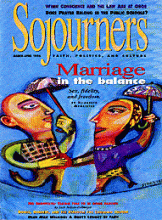It is wrong to make an idol out of the law. The Ten Commandments stipulate, "Thou shalt have no other gods before me." Obedience to law is very important, but such obedience should be penultimate, not ultimate. Our ultimate allegiance must be to God, not to human laws. This is seen most clearly in the case of unjust laws. But what if a particular law in itself is not "unjust"? How can I justify breaking a "neutral" law? Because he sometimes broke such neutral laws, Dr. Martin Luther King Jr. had to give this some thought. He said that there's nothing wrong with the law saying you must stop at a red traffic light. When a fire is raging, however, a fire engine goes through the light. When someone is bleeding to death, an ambulance goes through at top speed. In other words, following a higher purpose, such as saving life, can justify breaking a neutral law. One biblical example, perhaps, is relevant here. When the Jewish people were threatened with destruction, Mordecai urged Queen Esther to appeal to the king for help. She protested that, if anyone goes to the king without being summoned, they shall be put to death. "That is the law," she said (Esther 4:11). But she summoned her courage, broke this neutral law, appealed to the king, and saved her people. Jews today still celebrate this act of civil disobedience in the Festival of Purim.
Richard K. Taylor was parish services coordinator for St. Vincent de Paul Church in Philadelphia and a Sojourners contributing editor when this article appeared.
Read the Full Article

Already a subscriber? Login
